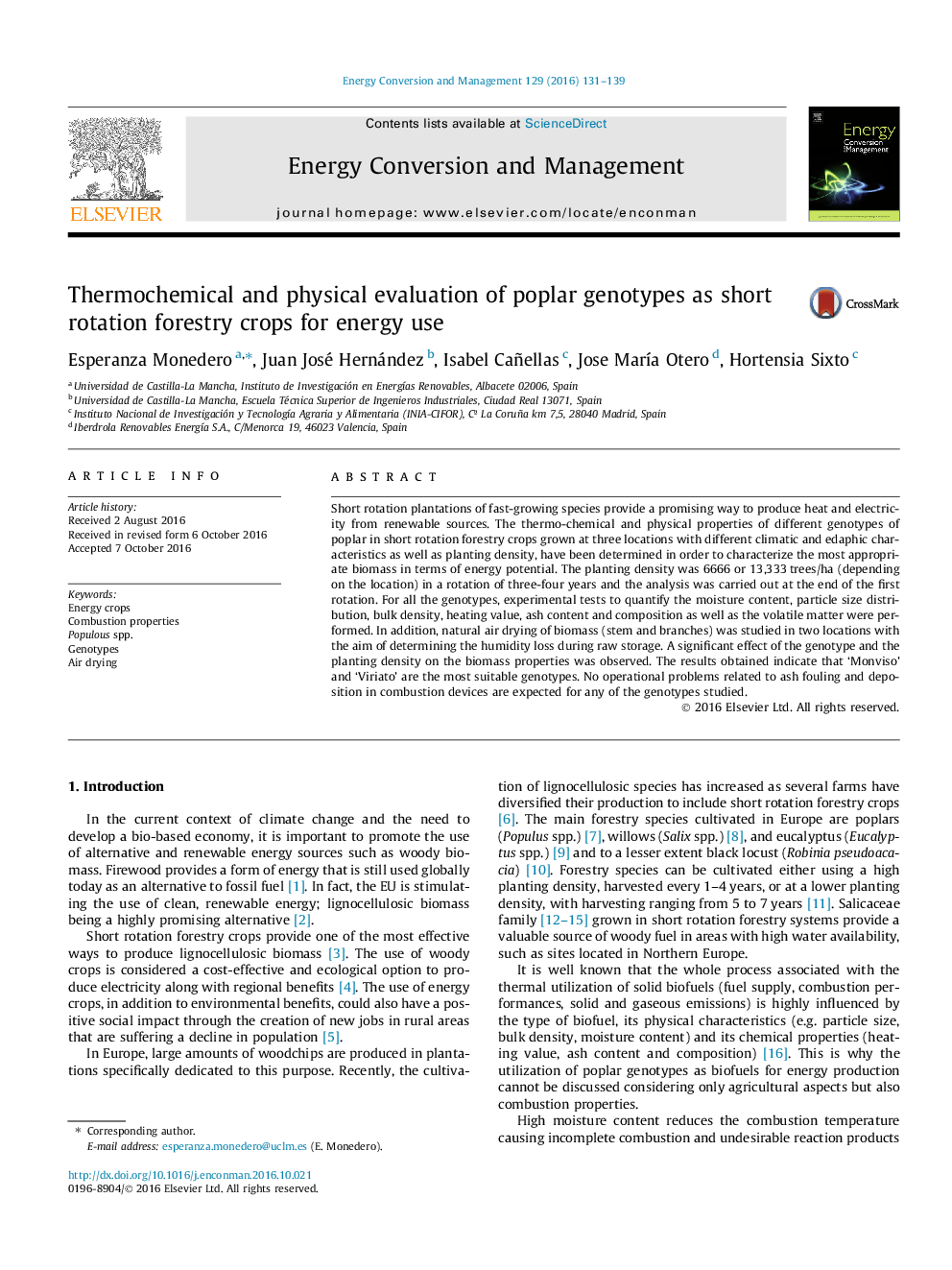| Article ID | Journal | Published Year | Pages | File Type |
|---|---|---|---|---|
| 5013325 | Energy Conversion and Management | 2016 | 9 Pages |
Abstract
Short rotation plantations of fast-growing species provide a promising way to produce heat and electricity from renewable sources. The thermo-chemical and physical properties of different genotypes of poplar in short rotation forestry crops grown at three locations with different climatic and edaphic characteristics as well as planting density, have been determined in order to characterize the most appropriate biomass in terms of energy potential. The planting density was 6666 or 13,333Â trees/ha (depending on the location) in a rotation of three-four years and the analysis was carried out at the end of the first rotation. For all the genotypes, experimental tests to quantify the moisture content, particle size distribution, bulk density, heating value, ash content and composition as well as the volatile matter were performed. In addition, natural air drying of biomass (stem and branches) was studied in two locations with the aim of determining the humidity loss during raw storage. A significant effect of the genotype and the planting density on the biomass properties was observed. The results obtained indicate that 'Monviso' and 'Viriato' are the most suitable genotypes. No operational problems related to ash fouling and deposition in combustion devices are expected for any of the genotypes studied.
Related Topics
Physical Sciences and Engineering
Energy
Energy (General)
Authors
Esperanza Monedero, Juan José Hernández, Isabel Cañellas, Jose MarÃa Otero, Hortensia Sixto,
